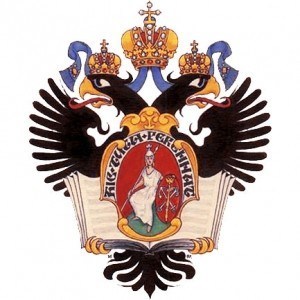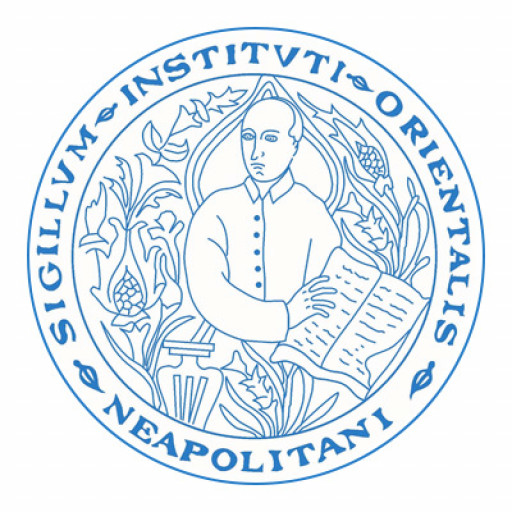Photos of university / #unibirmingham
Dive into the multifaceted world of global affairs with the University of Birmingham's International Relations degree. This comprehensive programme offers students the opportunity to explore the complex interactions between nations, international organizations, and non-state actors in a rapidly changing global landscape. Designed to develop critical thinking, analytical skills, and a deep understanding of international politics, the course covers a wide range of topics including diplomacy, security studies, international law, human rights, global governance, and economic development. Students will engage with contemporary issues such as conflict resolution, international migration, climate change, and technological innovation, preparing them for careers in diplomacy, government, NGOs, international business, and media. The programme emphasizes both theoretical frameworks and practical applications, encouraging students to apply their knowledge through research projects, simulations, and real-world case studies. With a strong emphasis on critical analysis and global perspectives, the course aims to equip graduates with the skills necessary to navigate and influence the international arena. The University of Birmingham provides a vibrant academic environment, supported by experienced faculty members and state-of-the-art facilities. Students benefit from opportunities such as internships, study abroad programmes, and expert guest lectures that enhance their learning experience and career prospects. Whether you aspire to work in international organizations, government agencies, or the private sector, this degree provides a solid foundation in understanding the interconnected world we live in and how to effect positive change. Join us to become a knowledgeable and proactive participant in addressing global challenges and shaping international policies.
Detailed Course Facts
Application deadline None, but early application advised Tuition fee- EUR 3844 Year (EEA)
- EUR 12916 Year (Non-EEA)
UK / EU students £3,375 International students £11,340
Start date September 2015 Credits (ECTS) 360 ECTSDuration full-time 36 months Languages Take an IELTS test
- English
Course Content
First year: You receive a thorough grounding in the study of international relations, with particular emphasis on the major approaches to the discipline and core issues such as conflict, war, peace, security, international and regional organisations, and international law. You also take a number of complementary courses in the department, and options offered elsewhere.
Second year: The second-year core course further develops your understanding of the discipline, introducing many new perspectives on international relations. As such, it is designed to develop your knowledge and theoretical understanding of this dynamic and changing field. In the second year you can also take a number of related courses within the department.
Third year: In the third year you may take a range of options. These include: Power in Britain; Twentieth Century Political Thought; Political Economy of the EU; Contemporary US Foreign and Security Policy; International Ethics; Contemporary IPE; Topics in British Politics; Poverty, Welfare and the State; Modern European Political Thought; European Security; Critical Security Studies; International Organisations; Advanced Modern Asia; and War-torn States and Post-conflict Reconstruction in the South.
Modules in the first year
You receive a thorough grounding in the study of international relations, with particular emphasis on the major approaches to the discipline and core issues such as conflict, war, peace, security, international and regional organisations, and international law. You also take a number of complementary courses in the department, and options offered elsewhere.
Compulsory core modules
- 10 credits - End of Empire: Problems of International History
- 10 credits - Problems of World History
- 20 credits - Foundations of Politics
- 20 credits - Introduction to International Relations
- 20 credits - Introduction to Political Economy
- 20 credits - Introduction to Methods (I)
Optional modules
Choose one of the following 20 credit lists of modules:
- 20 credits - Classical Political Thought
Or
- 10 credits - Twentieth Century Russian Politics A
- 10 credits - Twentieth Century Russian Politics B
Or
- 20 credits - Introduction to the European Union: History, Politics and Institutions
Or
- 10 credits - Introduction to Media, Culture and Society A
- 10 credits - Introduction to Media, Culture and Society B
Or
- 20 credits - Social Divisions
Modules must total 120 credits
Modules in the second year
The second-year core course further develops your understanding of the discipline, introducing many new perspectives on international relations. As such, it is designed to develop your knowledge and theoretical understanding of this dynamic and changing field. In the second year you can also take a number of related courses within the department.
Compulsory core modules
- 20 credits - Diplomatic History post 1945
- 20 credits - International Relations Theory
- 20 credits - Methods (II)
Optional modules
Choose 60 credits from the following modules (where linked, both elements must be chosen), or choose 40 credits from the list and 20 credits of Modules outside the main discipline only with permission from the Undergraduate Director:
- 20 credits - Comparative European Government
- 20 credits - Foundations of Modern Political and Social Theory
- 20 credits - Institutions, Politics and Policies of the European Union
- 20 credits - International Political Economy
- 20 credits - International Security A
- 20 credits - Modern Political Ideologies
- 20 credits - Political Analysis
- 20 credits - The American Presidency A
- 20 credits - The International Politics of East Asia
- 20 credits - The Political Economy of EU Enlargement
- 20 credits - Politics and Policy
- 20 credits - Public Choice Theory
- 20 credits - International Politics and Security in Russian and Eurasia
Modules must total 120 credits
Modules in the third year
In the third year you may take a range of options. These include:
Compulsory core modules
40 credits - Dissertation
Optional modules
Choose 80 credits from the following (where linked, both modules must be taken)
OR: Choose 60 credits from this section plus 20 credits from Modules outside the main discipline. Any module not listed below but available in the Department or as an Modules outside the main discipline will need approval from POLSIS.
- 20 credits - Contemporary US Foreign & Security Policy
- 20 credits - International Ethics
- 20 credits - Contemporary IPE
- 20 credits - Modern European Political Thought
- 20 credits - Controversies in Contemporary Democracies: Comparative Perspectives
- 20 credits - European Security
- 20 credits - Democracy and Democratization in Contemporary Europe
- 20 credits - International Organisations
- 20 credits - War Torn States and Post-Conflict Reconstruction in the South
- 20 credits - Critical Approaches to Security
- 20 credits - Advanced Modern Asia
- 20 credits - Immigration & Citizenship in Western Europe
- 20 credits - Devolution, Territorial Politics and Multilevel Governance
- 20 credits - Europe in a Globalised World
- 20 credits - Politics and Sport
- 20 credits - Left Parties and Protest Movements
- 20 credits - Diplomatic History of the Arab-Israeli Conflict
- 20 credits - The Political Economy of Germany in a European Context
- 20 credits - Gender in World Politics
- 20 credits - Advanced International Politics and Security in Russian and Eurasia
- 10 credits - Advanced Cultural Politics of Russian and Eastern Europe A10 credits - Advanced Cultural Politics of Russian and Eastern Europe B
- 10 credits - Political History of Central & Eastern in the 20th C. A10 credits - Returning to Europe: Nation, State & Europe in Post-Communist Central & Eastern Europe B
- 20 credits - Advanced Contemporary Russian and East European Politics
Modules must total 120 credits
English Language Requirements
CAE score : 80(Grade A)
To study at this university, you have to speak English. We advice you to
take an IELTS test. More About IELTSRequirements
Number of A levels required: 3Typical offer: AAB - ABB
General Studies: not accepted
International Baccalaureate Diploma: 32 - 36 points
Standard English language requirements apply. For further information you can find information about qualifications from your country or regionOther qualifications are considered: Students with other qualifications are advised to speak to Undergraduate admissions.
Work Experience
No work experience is required.
Related Scholarships*
- Academic Excellence Scholarship
"The Academic Excellence Scholarship can provide up to a 50 % reduction in tuition per semester. These scholarships will be renewed if the student maintains superior academic performance during each semester of their 3-year Bachelor programme. The scholarship will be directly applied to the student’s tuition fees."
- Access Bursary
Bursary for UK students all subjects where the variable tuition fee rate is payable.
- Alumni Bursary
Alumni Bursary for UK Undergraduate students
* The scholarships shown on this page are suggestions first and foremost. They could be offered by other organisations than University of Birmingham.
The International Relations program at the University of Birmingham offers students a comprehensive and in-depth understanding of global politics, international systems, and diplomatic practices. Designed to equip students with analytical skills and a nuanced perspective on international affairs, the course covers a wide range of topics including international security, global governance, human rights, international political economy, and conflict resolution. The program emphasizes critical thinking and encourages students to engage with current global issues through case studies, research projects, and practical simulations. Faculty members are experienced scholars and practitioners who bring a diverse range of expertise, fostering a dynamic learning environment. The curriculum combines theoretical frameworks with real-world applications, preparing graduates for careers in diplomacy, international organizations, government agencies, non-governmental organizations, and global policy think tanks. Students have opportunities for international exchanges, internships, and fieldwork, enhancing practical experience and cultural understanding. The program also promotes intercultural awareness and effective communication skills vital for working in multicultural environments. With access to extensive university resources, research centers, and libraries, students can deepen their understanding of key international relations theories and current global developments. Graduates of the program are well-positioned to pursue further studies or embark on professional careers across the international sector. Overall, the International Relations degree at Birmingham University combines rigorous academic study with practical engagement, aiming to prepare students to become informed global citizens and effective policymakers.










